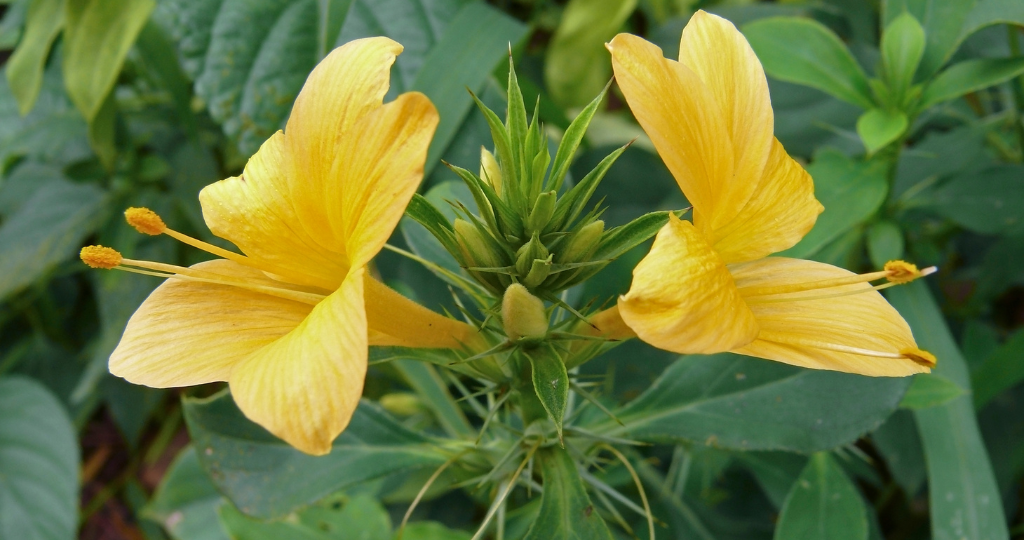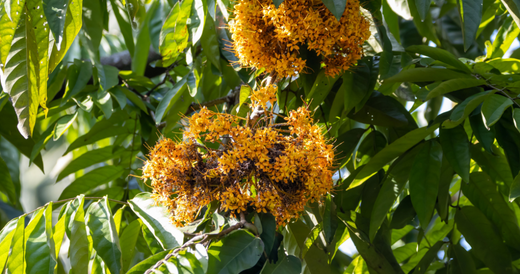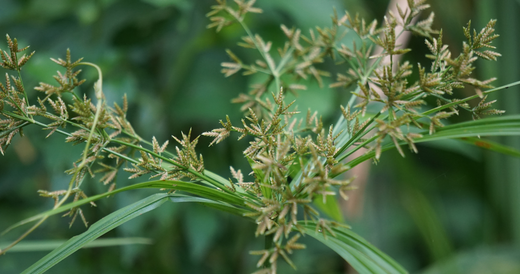
Vajradanti [Barleria] Complete Guide to the Ayurvedic Herb
An Introduction to Vajradanti Herb
Vajradanti is a perennial herb that grows primarily in Nepal and parts of India. It has thick, twisted roots that grow under the ground. These roots have been used in the ancient Indian medicine system of Ayurveda for a very long time to make natural remedies.
- Hindi Name: Vajradanti
- English Name: Barleria
- Sanskrit Name: Saireyaka
- Latin Name: Barleria prionitis Linn
Evidence-Based Advantages of Vajradanti
Here's a list of health benefits of Vajradanti
- Antimicrobial properties against oral pathogens
- Anti-inflammatory abilities for treating gum disease
- Helps in Toothache relief
- Protection against cavities and plaque
- Promotion of oral hygiene and health
- Antioxidant properties from phenols like gallic acid
- Antiulcer abilities from tannins and flavonoids
- Analgesic (pain-relieving) properties
- Astringent capabilities for treating wounds or cuts
- Cytotoxic effects against certain cancer cell lines

Source: Canva
1. Vajradanti plant for antimicrobial protection
Vajradanti exhibits antimicrobial activities against several oral microorganisms like Streptococcus mutants, Candida albicans, Staphylococcus aureus, and more. The phytochemicals pentacyclic triterpenes and steroidal glycosides found in Vajradanti inhibit bacterial adhesion and disrupt microbial cells in the oral cavity. The barleria prionitis medicinal uses includes antimicrobial protection in the mouth.
2. Vajradanti for Treating Gum Disease
The anti-inflammatory qualities of Vajradanti can help treat gingivitis and periodontitis. The herb can inhibit the release of cytokines and enzymes like elastase that promote inflammation. The pentacyclic triterpenes also limit the production of inflammatory mediators. By controlling inflammation, Vajradanti extracts help manage gum disease symptoms.
3. Vajradanti for Toothache Relief
Vajradanti exhibits significant analgesic effects that relieve toothache pain caused by dental cavities and other tooth infections. Dental pain reduction is comparable to common anti-inflammatory drugs. Bioactive compounds like glycosides and tannins modulate pain receptors and interfere with pain signal pathways to alleviate tooth pain.
Other Plants:
4. Vajradanti for Protection Against Cavities and Plaque
Phytochemicals in Vajradanti demonstrate antibacterial effects on cariogenic bacteria responsible for dental caries/cavities like Streptococcus mutans and Streptococcus sobrinus. They also limit acid production and demineralisation of enamel caused by such bacteria. Furthermore, Vajradanti extracts inhibit bacterial aggregation on teeth, reducing dental plaque. This protects from cavities and plaque buildup.
5. Vajradanti for Promotion of Oral Hygiene and Health
The antimicrobial, anti-inflammatory and analgesic effects of Vajradanti promote oral cleanliness, tissue health and proper mouth functioning. Active constituents create an environment unsuitable for periodontal pathogens to persist. By eliminating harmful microbes and controlling inflammation, Vajradanti is beneficial for maintaining good oral hygiene and a healthy mouth.
6. Vajradanti for Boosting Cellular Health
Phenolic compounds like gallic acid and ellagic acid impart considerable antioxidant capacities to Vajradanti extracts. In vitro testing shows they neutralise free radicals and reactive oxygen species that can damage oral tissue cells. Such antioxidants boost cellular health and integrity for better functioning of tissues like gums, palate, tongue, etc.
7. Vajradanti to ulcer formation
Tannins and flavonoids in Vajradanti exhibit cytoprotective and antisecretory properties that help combat ulcers in the mouth or gastrointestinal system. The vajradanti tree is said to possess the ability to promote mucus production and cell proliferation and reduce gastric acid secretion to prevent ulcer formation. Such qualities demonstrate the herb's effectiveness against oral or gastric ulcers.

Source: Canva
8. Vajradanti for Treating Wounds or Cuts
Owing to a high tannin content, Vajradanti preparations demonstrate marked astringent properties. When applied topically, they induce the contraction of tissues, leading to the drawing together of wounded or inflamed mucus membranes or skin. This aids healing of mouth injuries, cuts, ulcers, etc. by arresting discharges and reducing swelling and pain.
9. Vajradanti for Cancer Cell Lines
Scientific experiments reveal that specific isolated compounds from Vajradanti, like pentacyclic triterpenes and ellagic acid, have dose-dependent cytotoxic activities against some carcinoma cell lines without harming normal healthy cells. Such selective anticancer potentials make Vajradanti a promising natural candidate for development as an anticancer therapeutic agent.
Nutrition Facts of Vajradanti
The roots and extracts of Vajradanti are valued for their medicinal properties; the plant also provides some key nutrients. Vajradanti contains vitamin C, an essential vitamin with antioxidant functions. Though not a significant source of macros like protein or carbs, Vajradanti can contribute valuable micronutrients and beneficial plant compounds to complement nutrition intake through diet.
|
Essentials Components |
Purpose |
|
Vitamin C |
Antioxidant functions Immune health support Promotes wound healing Assists iron absorption and tissue repair |
|
Vitamin K |
Essential for proper blood clotting |
|
Iron |
Facilitates oxygen transport Supports energy production |
|
Magnesium |
Important for muscle and nerve function |
|
Zinc |
Supports immune system function Assists in cell division |
|
Folate |
Essential for cell division and growth Key for DNA and RNA formation |
|
Flavonoids |
Exhibit antioxidant effects Help protect cells from damage |
|
Tannins |
Demonstrate antioxidant capabilities May mitigate inflammation and oxidative stress |
How Does Vajradanti Work for Health Issues?
The Vajradanti plant has very special roots that grow underground. These roots are full of healthy things like Vitamin C, compounds that reduce swelling, fight germs, and take away pain. When the good things in Vajradanti mixes like vitamin C and pain reliever compounds, are put directly on problem areas in the mouth, they start working immediately. The vitamin C protects cells.
The swell reducer makes the swelling go down. The germ killer finishes infection fast. And the pain agent gives relief! All the healthy compounds work together as a team. It's almost like the Vajradanti root sends tiny helpers into your body to scrub away infection, clean up swelling, and silence pain. This is how Vajradanti solves dental issues and other problems naturally.
Basically, Vajradanti employs a multifaceted therapeutic approach through its nutritive constituents to ease multitudes of ailments afflicting the body. The herb's components work synergistically to promote better health by tackling root causes and restoring balance in affected tissues and systems.
Other Plants
Top Ways You Can Use Vajradanti
The following are the ways you can use Vajradanti:
- Vajradanti extracts like mouthwashes and toothpaste prevent gum disease, cavities, plaque buildup, and other oral infections due to their antimicrobial and anti-inflammatory properties.
- Consuming Vajradanti teas helps combat issues like ulcers, abdominal pain, bloating and constipation owing to gastroprotective compounds.
Top Vajradanti Myths and Facts

Source: Canva
Here are presenting the myths and facts associated with Vajradanti:
Facts About Vajradanti
Here are some interesting facts about the Vajradanti plant:
- Vajradanti gets its name from the Sanskrit words "vajra" meaning thunderbolt and "dant" meaning tooth, referring to its traditional use for tooth problems.
- It belongs to the Barleria genus and has prickly shrubs with a knotty rootstock that grows mainly in Nepal, parts of India, and Sri Lanka.
- Vajradanti root extracts exhibit antimicrobial, analgesic, anti-inflammatory, cytoprotective, and wound-healing properties.
- Active medicinal compounds identified in the plant include pentacyclic triterpenes like oleanolic acid, important vitamins like Vitamin C and K, tannins, glycosides, flavonoids, and more.
- Traditional Ayurvedic medicine has utilised Vajradanti for ages to treat toothaches, gum/mouth ulcers, and bleeding gums.
- Modern applications target dental issues like gingivitis, dental cavities, plaque and digestive complaints like gastritis or ulcers.
- Vajradanti is featured in traditional Nepali folk songs and poems, which speak of young men gifting the plant's roots to impress their lovers.
Myths About Vajradanti
- Vajradanti can regrow lost teeth or rebuild enamel.
- Daily consumption of Vajradanti guarantees eternal dental health
- Drinking Vajradanti root decoctions prevents cancer
- Rubbing Vajradanti leaves on the skin cures all rashes and acne overnight.
Our Thoughts
From playing a role in ancient Ayurvedic practices to receiving modern scientific validation, it's clear the Vajradanti herb bears bountiful therapeutic benefits, especially for dental well-being and comfort. However, overstated myths have also surfaced around it. Compounds like antioxidant vitamin C, anti-inflammatory triterpenes, antimicrobial tannins and more in its nutrient-rich roots promote healthy teeth and gums, alleviate oral pain, and even neutralize oral microbes. Simple but careful home cultivation makes Vajradanti widely accessible.
FAQs
1. What are some traditional uses of the Vajradanti plant in Ayurvedic medicine?
Some traditional uses are treating toothaches, gum ulcers, bleeding gums and digestive issues like gastritis, and as an ornamental plant.
2. What key bioactive compounds are present in Vajradanti that give it medicinal properties?
Key bioactive compounds include vitamins C and K, pentacyclic triterpenes, tannins, glycosides, flavonoids, antioxidants, and anti-inflammatory agents.
3. Does consuming Vajradanti guarantee lifelong protection from dental problems?
While Vajradanti has antimicrobial and anti-inflammatory properties that promote dental health, proper oral hygiene practices are needed to guarantee eternal protection.
4. Can using Vajradanti help regrow lost teeth or rebuild tooth enamel?
While Vajradanti can help relieve tooth infections and pain, it cannot make new teeth grow or restore severely damaged tooth structure or enamel.
5. What are some ways Vajradanti can be used at home for health benefits?
Some home uses are Vajradanti mouthwashes, toothpastes or oils for dental care; Vajradanti teas or decoctions for digestive issues; and topical skin applications for certain inflammatory conditions.







Leave a comment
This site is protected by hCaptcha and the hCaptcha Privacy Policy and Terms of Service apply.